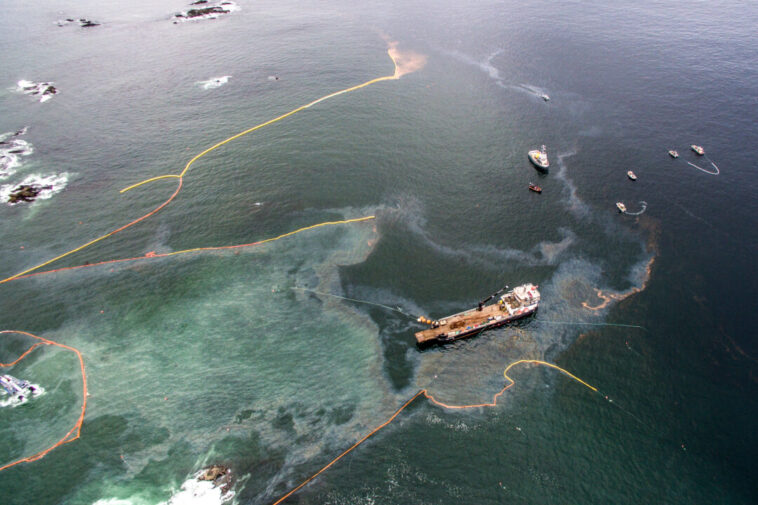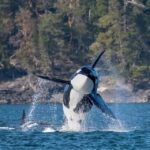Friday June 21, 2024 marks the fifth anniversary of the north coast tanker ban that many argue has been instrumental in saving BC’s coast from catastrophic oil spills.
The Oil Tanker Moratorium Act (Bill C-48) was passed into law on June 21, 2019 and prohibits oil tankers that are carrying more than 12,500 metric tons of toxic crude oil from stopping along the province’s north coast, from the northern tip of Vancouver Island to the Alaska border.
This region, often referred to as the Great Bear Sea, supports thriving coastal economies and diverse marine life from seabirds, sea otters, orcas, humpback whales, shellfish, groundfish, and five species of Pacific Salmon to ancient glass sponge reefs found nowhere else on the planet.
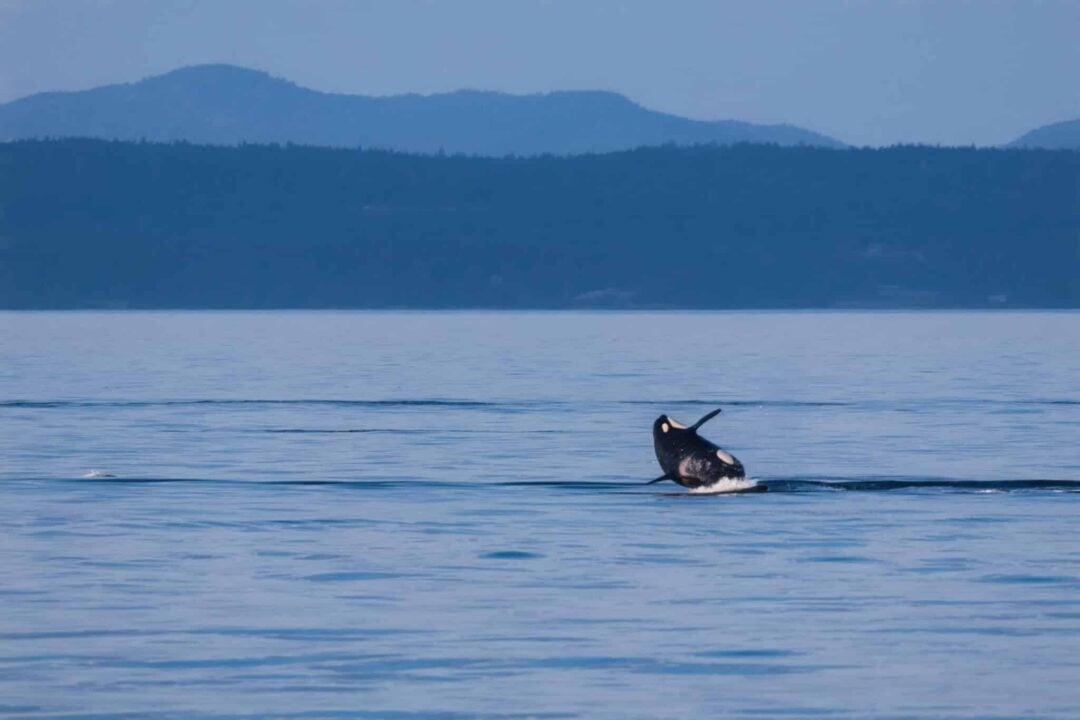
The successful tanker ban legislation was the result of a wide-range of community groups working together, including First Nations, environmental groups, the Union of BC Indian Chiefs, the Union of BC Municipalities, the United Fishermen and Allied Workers Union, and northern politicians.
“Maintaining the tanker ban, in terms of food security and in terms of coastal communities, is something that is really, really crucial.”
Guy Johnston, Secretary Treasurer of United Fishermen & Allied Worker’s Union
Looking back on the past five years, supporters of the legislation argue the tanker ban is not only something British Columbians should be celebrating, but also using as inspiration for tackling other threats to the health, security, and well-being of local communities and our coastal waters.
The Cost of Oil Spills
After the disastrous 1989 Exxon-Valdez oil spill in Alaska devastated local economies and livelihoods, north coasters banded together to recognize a de facto moratorium on tankers before the legislation was formally passed in 2019.
“You just look at Prince William Sound and the loss there in Alaska after the Exxon-Valdez,” said Guy Johnston, Secretary Treasurer of United Fishermen & Allied Worker’s Union (UFAWU). “It devastated that area for decades and that’s something obviously we are not facing here. Maintaining the tanker ban, in terms of food security and in terms of coastal communities, is something that is really, really crucial,” he added.
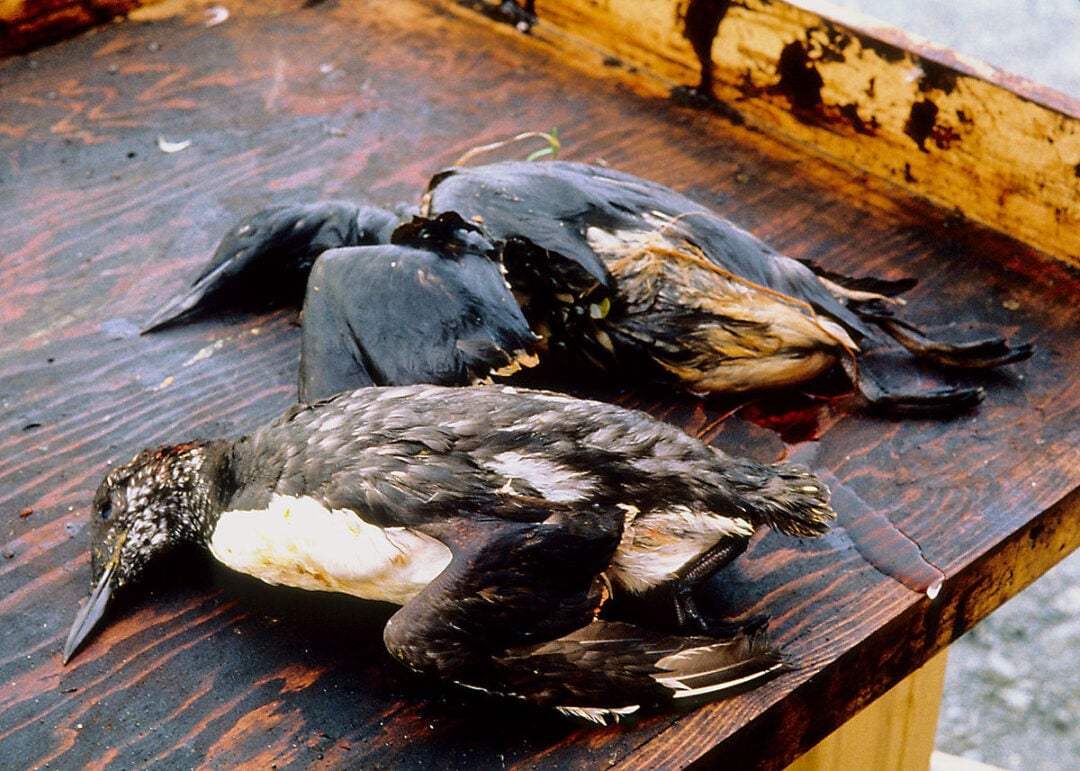
The ecological impact of the Exxon-Valdez spill resulted in somewhere between 100,000 and 250,000 dead sea birds, 2800 sea otters, at least 22 orcas, contamination of miles and miles of shellfish beaches, and untold numbers of crab, groundfish, salmon, and herring.
The spill also did long-term economic harm to Alaskans, devastating their fisheries, recreational fishing and tourism, not to mention the lasting negative health effects suffered by people who were tasked with cleaning oil off the beaches.
“The impacts were felt right away. The community felt like … it was like losing a loved one.”
Hím̓ás Wigvilhba Wakas (Hereditary Chief Harvey Humchitt)
The Nathan E. Stewart spill on BC’s central coast remains a cautionary tale a bit closer to home. Shortly after 1 A.M. on October 13, 2016, the tugboat sank in Heiltsuk waters, releasing 110,000 litres of diesel, heavy oil, and pollutants into Gale Creek near Bella Bella – an essential food harvesting and cultural site for the Heiltsuk First Nation.
Heiltsuk community members were left scrambling to respond to the massive oil spill after a poorly coordinated governmental response. As a result of this direct experience, Heiltsuk First Nation Chief Marilyn Slett is outspoken about the failures of Canada’s oil spill response system and the lack of transparency around the hazardous impact of the spill.
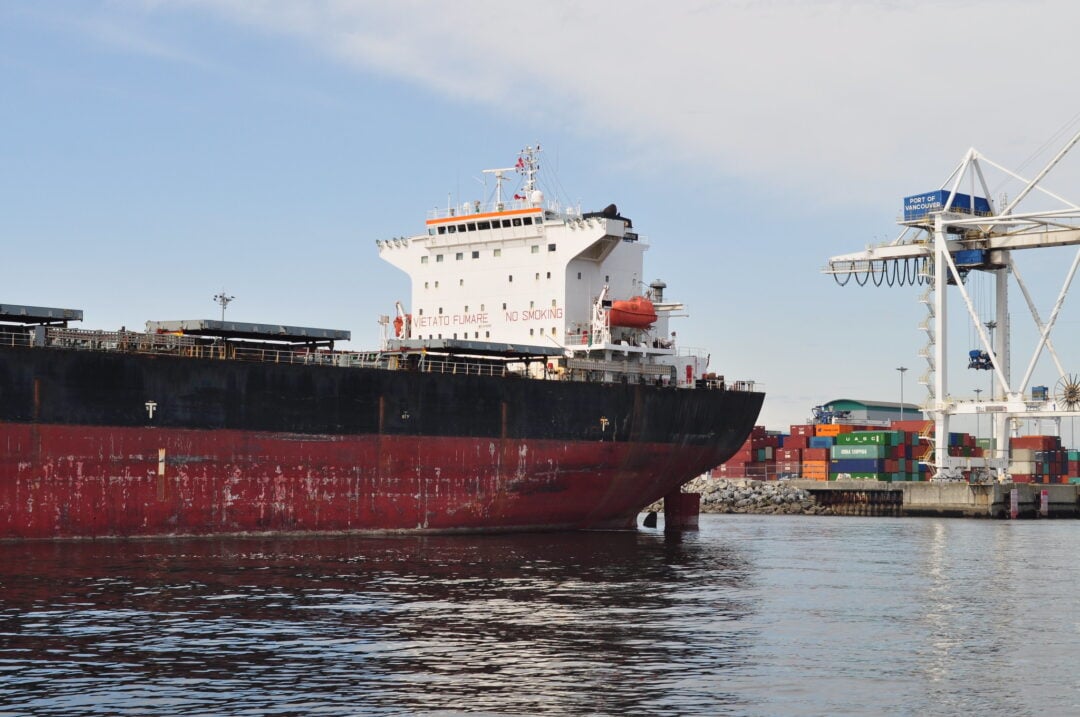
The lingering effects on Heiltsuk food security are still felt to this day, and they cannot harvest in the area which was known as their ‘breadbasket.’ “The impacts were felt right away,” said Hím̓ás Wigvilhba Wakas (Hereditary Chief Harvey Humchitt) to The Narwhal earlier this year. “The community felt like … it was like losing a loved one.”
Some Politicians Seek Repeal of Ban
With these devastating toxic spills lingering as stark warnings for the north coast, many are now concerned by Pierre Poilievre and the federal Conservatives’ eagerness to repeal the north coast tanker ban. If he were elected, Poilievre has promised to remove the tanker restrictions in BC and fast track pipelines in western Canada.
“That sort of disregard for the environment… I find that really disappointing that they would be talking in that way. That’s really not what fishing communities are looking for. We need a healthy ecosystem to have healthy communities and a healthy economy on our coast.”
Guy Johnston, Secretary Treasurer of United Fishermen & Allied Worker’s Union
“When I hear that, it reminds me of when Stephen Harper stopped the Department of Fisheries from doing regional science work,” said the fishery union’s Johnston, referring to Harper’s muzzling of scientists, which was documented in an investigation by the Information Commissioner of Canada in 2018.
“That sort of disregard for the environment… I find that really disappointing that they would be talking in that way,” said Johnston. “That’s really not what fishing communities are looking for. We need a healthy ecosystem to have healthy communities and a healthy economy on our coast.”
Greg Taylor, a widely respected independent fisheries expert and former executive with Ocean Fisheries, agrees that a Conservative repeal of the oil tanker ban could pose significant risks to marine ecosystems, fisheries, and the coastal economy. “Most anyone who lives in BC can see first hand the impacts of climate change on ecosystems, salmon, and the things that contribute to their love of our province,” he said.

“Which is why most find it inconceivable that there are people advocating to threaten these values in the interest of a few oil companies and those tied to them.”
In particular, he thinks that coastal Indigenous communities, like the Heiltsuk after the Nathan E. Stewart incident, stand to be impacted disproportionately. “I believe the long lasting impacts will be felt by First Nations whose economies, food security, and sense of connection to their lands and histories may be forever altered and people who live, recreate, and earn their livings on the north coast,” Taylor explained.
This isn’t the first time the federal Conservatives have tried to repeal the north coast tanker ban. In 2021, Conservative MP James Cumming of Edmonton introduced Bill C-229 that included one line to dissolve the tanker legislation that had drawn ire from many in his party.
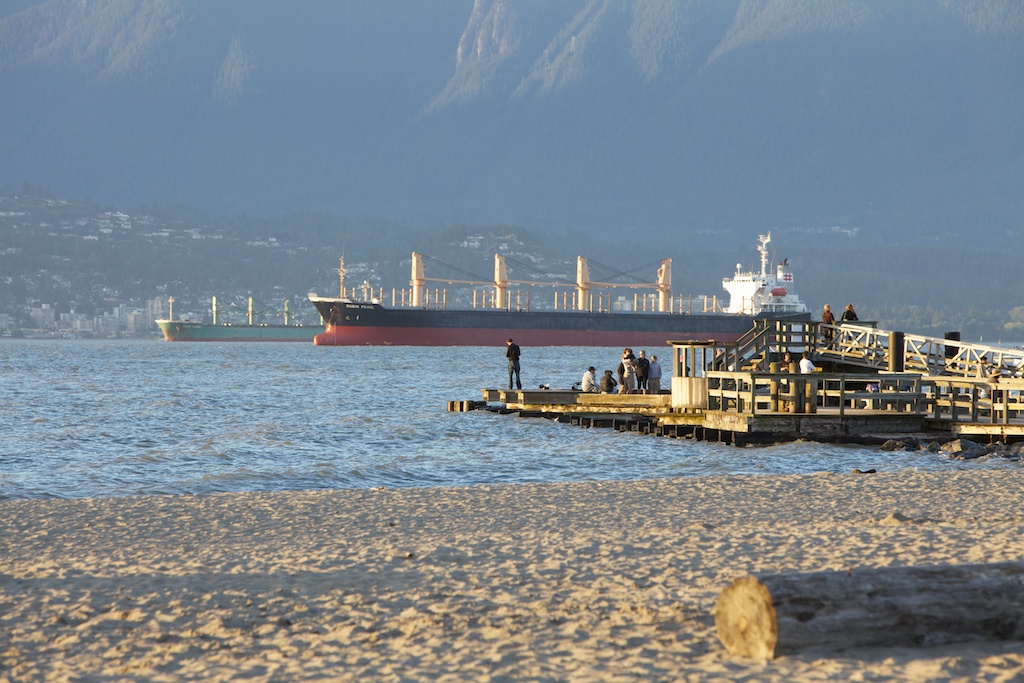
NDP MP Taylor Bachrach was outspoken against Cumming’s bill at the time, holding a town hall event with hundreds of his community members to rally against it. “It was inspiring to see so many people from across our region come together to talk about the future of our coast,” Bachrach said in 2021.
“I know that for some, the efforts to stop Northern Gateway and enact a tanker moratorium feel like a distant memory, but the Conservatives’ latest bill shows we need to remain vigilant,” Bachrach stated, his words continuing to echo to this day.
Celebrate the Wins
“When we work together, when our collective interests outweigh the differences that at times we have, we can really achieve lots. That’s absolutely impressive and really important for us, our kids and for the future.”
Guy Johnston, Secretary Treasurer of United Fishermen & Allied Worker’s Union
Five years after the tanker moratorium came into effect, the UFAWU’s Guy Johnston thinks BC should be celebrating the ban, and points to it as an example of the power of collective organizing. “I don’t think it can be emphasized enough – the impact that all different communities working together can have in a positive way,” he said.
“The tanker ban is a great example of First Nations, labour, and community organizations working together for a goal that really is important to those different groups and benefits society at large. I think it’s a real testament to that and something to be proud of,” he stated.
“When we work together, when our collective interests outweigh the differences that at times we have, we can really achieve lots. That’s absolutely impressive and really important for us, our kids and for the future,” said Johnston.




